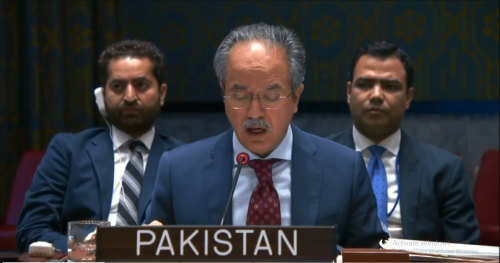ISLAMABAD: The decision of the federal government to allow the Inter-Services Intelligence (ISI) to intercept citizens’ calls and messages, was challenged in the Islamabad High Court (IHC) on Thursday by members of the Pakistan Bar Council (PBC), who asked the court to declare the notification null and void.
The six PBC members who moved the court included Shafqat Mehmood Chauhan, Abid Shahid Zuberi, Chaudhry Ishtiaq Ahmed Khan, Munir Ahmed Kakar, Tahir Fraz Abbasi, and Abid Saqi.
These lawyers are not office-bearers of the apex council, but belong to the opposition faction.
The petition challenged the SRO 1005(I)/2024 that empowered BS-18 or above officers of the ISI to surveil citizens in the name of national security.
It contended that the notification issued under the Pakistan Telecommunication Authority (PTA) Act’s Section 54 was illegal and the Fair Trial Act 2013 had the complete mechanism for this matter.
“Even prior to the promulgation of Investigation for Fair Trial Act, Section 54 of Telecom Act that empowered the federal government to intercept the calls was ultra vires as it suffered from excessive delegation, granting the federal government unbridled powers and unfettered discretion without sufficient legal and constitutional safeguards,” the petitioners contended.
The petitioners requested the court to declare the notification null and void until the case is pending.
A day earlier, the Lahore High Court was also moved by a citizen against the decision of the federal government that authorised the ISI to intercept calls and messages of citizens.
It may be noted that Justice Babar Sattar of the IHC had been hearing a case regarding audio leaks involving the former prime minister and his wife, the son of a former chief justice, and other citizens.
On May 5 last year, Justice Sattar framed a list of questions and posed them to the stakeholders, asking them to explain — first and foremost — which law empowered the executive to record or surveil phone calls or telecommunication between private citizens.
The federal government, apparently in response to the questions framed by Justice Sattar in the audio leaks case, empowered the ISI to “intercept calls and messages” in a bid to legalise the surveillance.
Before the notification authorising the ISI to spy on citizens was published, the IHC was informed of the existence of the Lawful Intercept Management System (LIMS), a mass surveillance system that was in place to keep tabs on millions of citizens in violation of rules and laws.
Published in Dawn, July 12th, 2024















































